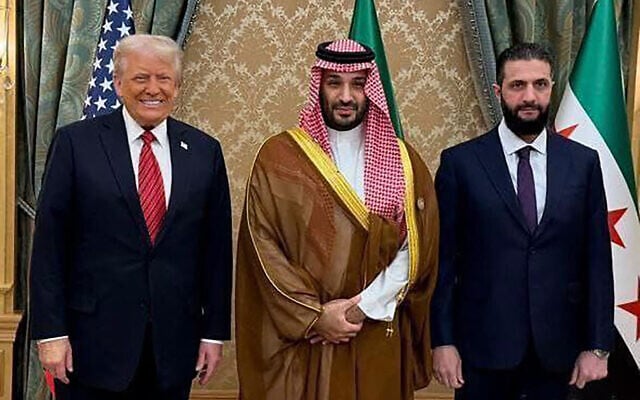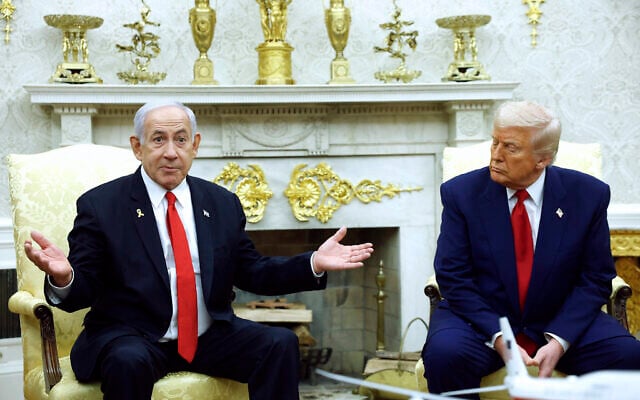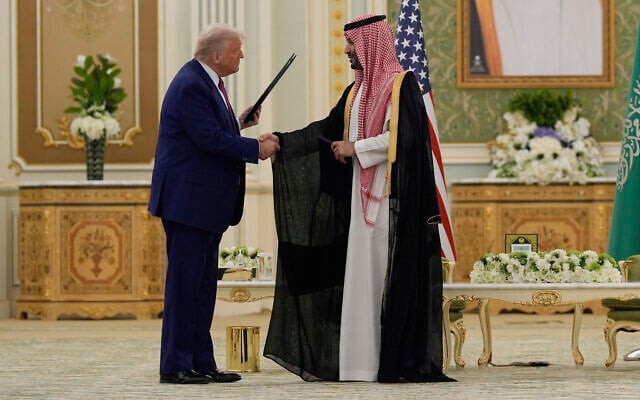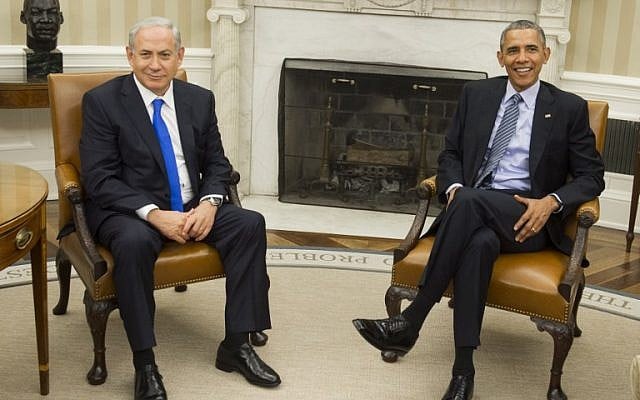


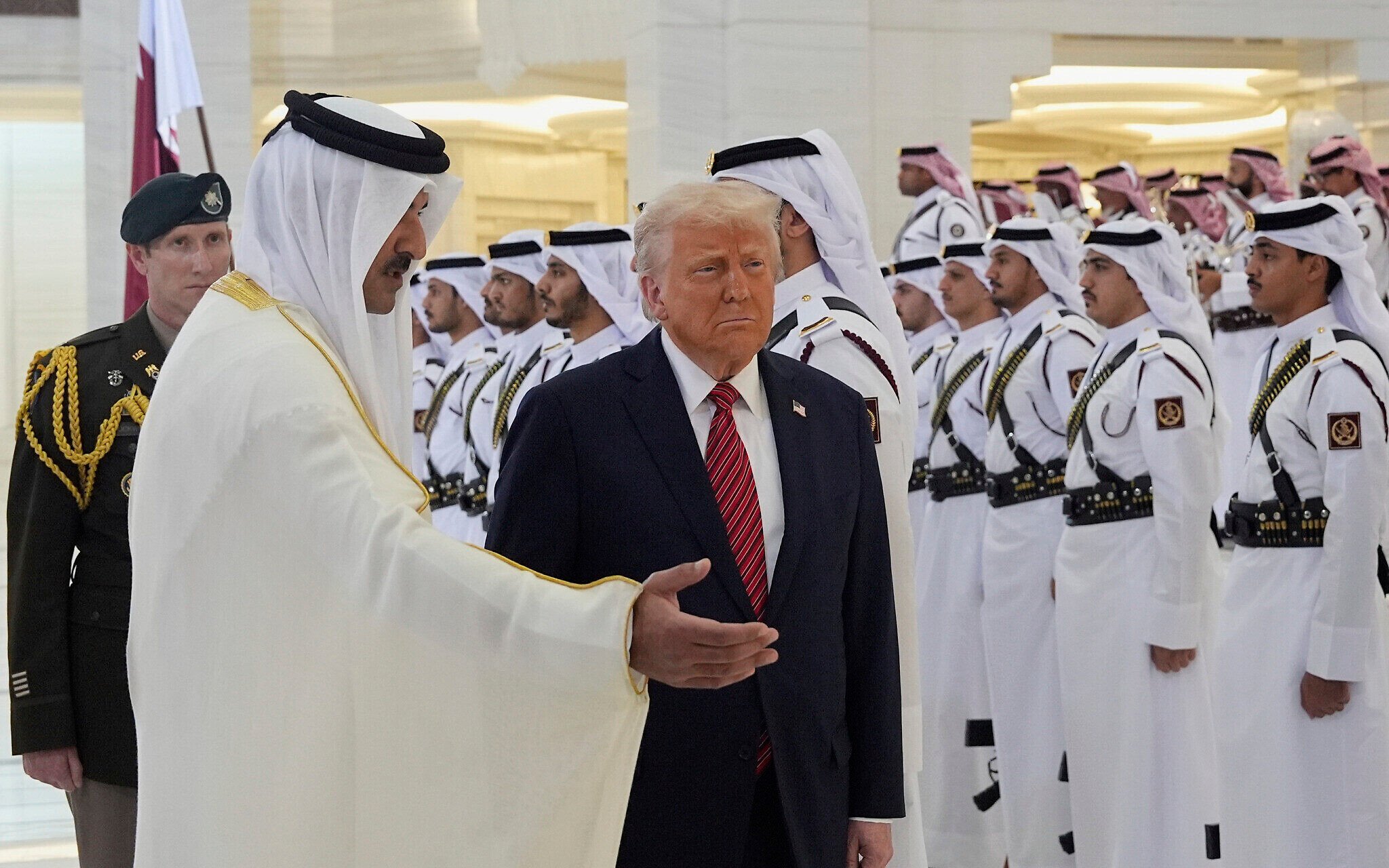
As US President Donald Trump jetted from one sprawling palace to another, embracing Arab leaders and heralding a new Middle East this week, many in Israel worried that the best partner they’ve ever had in the White House had lost interest.
For decades, Israel has leveraged its special relationship with the United States to serve as a gatekeeper to Washington. From the 1978 Camp David Treaty with Egypt to the 2020 Abraham Accords brokered by Trump in his first term, Arab states seeking US favor usually had to first make nice with Israel. And rarely did their interests prevail if they clashed with Israel’s.
But on Wednesday, to Israel’s dismay, Saudi Arabia and Turkey brokered a historic meeting between Trump and Syria’s new president, and Trump portrayed his decision to lift sanctions on Damascus as a favor to his host, Saudi Crown Prince Mohammed bin Salman, and Turkish President Recep Tayyip Erdogan.
Israel, which still views Syria as a security threat and had urged Trump to keep the sanctions in place, was ignored, as it apparently was on a number of recent US initiatives in the region, from the ongoing talks with Iran to the ceasefire with Yemen’s Iran-backed Houthi rebels. Asked Friday if he knew Israel opposes US recognition of Syria’s new government, Trump replied: “I don’t know, I didn’t ask them about that.”
“This week there was a party in the Middle East — a grand ball full of colorful costumes, money and gold changing hands — and we found ourselves playing the role of Cinderella before the transformation,” columnist Sima Kadmon wrote in Israel’s Yedioth Ahronoth daily.
“The fairy godmother we thought we had flew off to Saudi Arabia and Qatar.”
Trump skipped Israel on his first major foreign tour, which instead took him to Saudi Arabia, Qatar and the United Arab Emirates.
The tour, which ended Friday, began on Tuesday, a day after Hamas released Israeli-American captive IDF soldier Edan Alexander following indirect talks with Trump’s special envoy to the Middle East, Steve Witkoff, reportedly in exchange for US pressure on Israel to reach a ceasefire in Gaza.
The tour also came a week after Trump announced the Houthi ceasefire, which has allowed the Iran-backed rebels to train their fire on Israel, and amid the Iran nuclear talks, which could bring about another deal that Israel rejects.
There have been no open clashes between Trump and Prime Minister Benjamin Netanyahu, both of whom say US-Israel relations have never been better. Trump has yet to scold Israel, at least in public, as former US President Joe Biden occasionally did, over civilian deaths in Gaza.
But compared to Trump’s first term, when he upended decades of US foreign policy to lend unprecedented support to Israel, something has changed.
This time around, Trump seems to be hunting for quick wins — big investment deals to boost the American economy and diplomatic agreements like the India-Pakistan ceasefire and the release of hostages from Gaza. In that respect, Netanyahu has little to offer.
Hamas-led terrorists abducted 251 people on October 7, 2023, when thousands of terrorists stormed southern Israel to kill some 1,200 people, sparking the war in Gaza. Netanyahu has refused to end the war until Hamas is defeated, even in exchange for the release of the remaining 58 hostages. He has also long rejected the establishment of a Palestinian state.
However, an end to the Gaza war and a pathway to Palestinian statehood are some of Riyadh’s key demands for the kind of Israeli-Saudi normalization accord Trump has long sought.
“Trump has given Israel many opportunities, and ammunition prohibited by the Biden administration, to end the war in Gaza. This is what Trump wants,” said Eytan Gilboa, an expert on US-Israeli relations at Bar-Ilan University in Ramat Gan and Reichman University in Herzliya. Instead, the war is intensifying.
“Netanyahu is coming closer to the status of a loser in Trump’s eyes,” Gilboa said.
The US leader has downplayed any schism, telling reporters on the tour that his relationships with regional leaders are “good for Israel.”
The irony is that Israel is being excluded from a regional realignment that it largely created, by inflicting punishing losses on Iran and its proxies following the Hamas onslaught of October 7. Israel’s thrashing of Hezbollah in Lebanon hastened the downfall of Syria’s former Iran-backed president Bashar al-Assad. Tehran may also be more open to concessions on its nuclear program after Israel dealt serious blows to Iranian air defenses, in retaliatory strikes that followed the Islamic Republic’s two first-ever attacks on Israel, in April and October of last year.
Michael Oren, a historian and former Israeli ambassador to the US, said there is at least one precedent for Trump’s approach.
“It’s going to drive the people in Washington crazy, but it most closely resembles the Obama administration,” he said.
On Barack Obama’s first visit as US president to the Middle East, he too skipped Israel. Oren, a critic of that administration who was Israel’s envoy to the US at the time, said Obama repeatedly violated an unspoken rule of US-Israeli relations — that there be no surprises. That led to public spats with Netanyahu, especially around the 2015 Iranian nuclear deal.
Few expect a repeat under Trump — or that he will publicly press Israel to wind down the war in Gaza, despite the humanitarian catastrophe in the Strip.
In a speech in Riyadh on Tuesday, Trump said the days of US “lectures” to Middle Eastern nations are over, and that decades of American intervention have done more harm than good.
And the Israeli-Palestinian conflict is the last place any American president would look for a quick win.
“He’s not looking for a fight with Israel,” Oren said. “He wants to end the war, but the war can end in different ways.”

